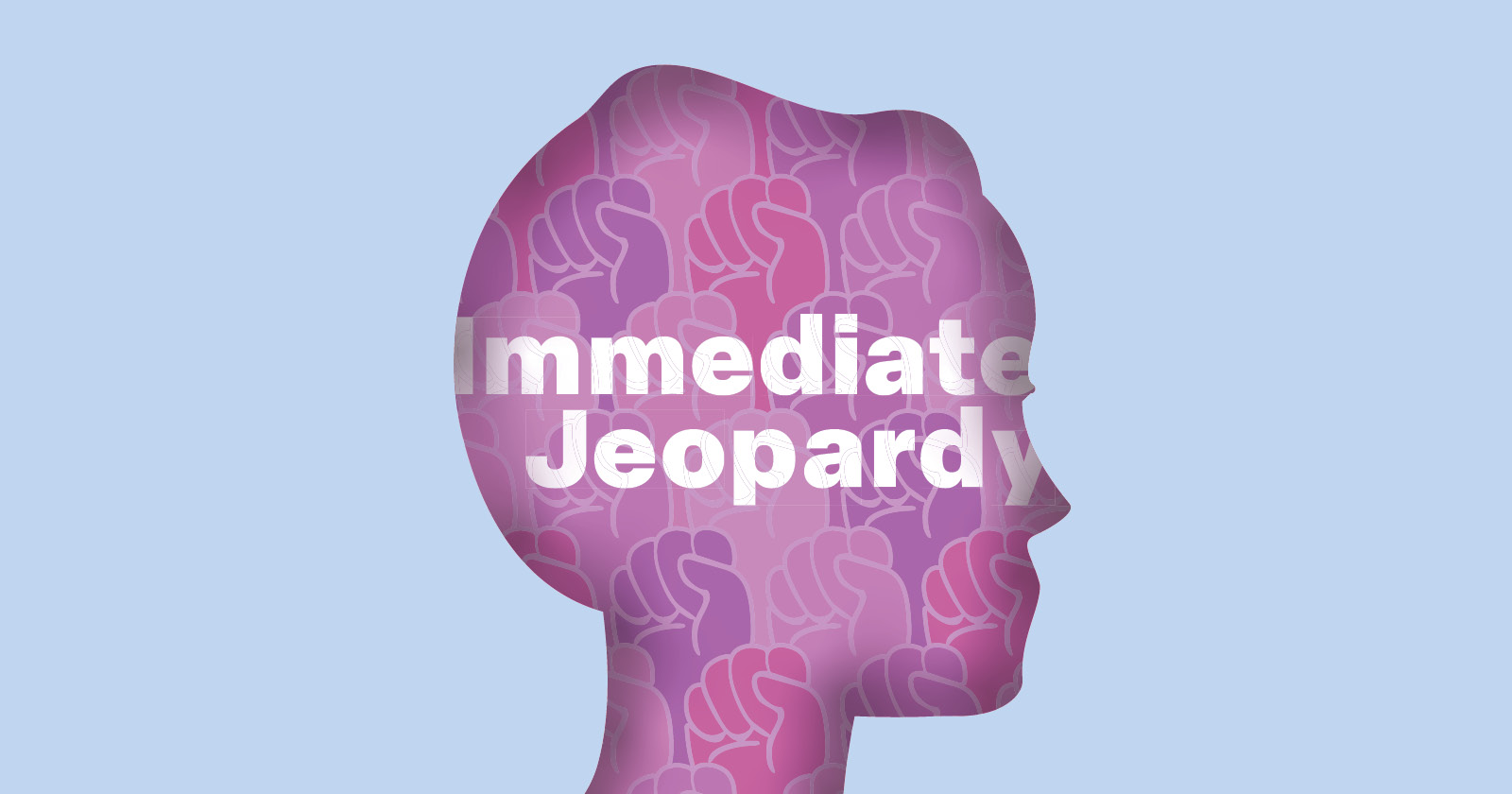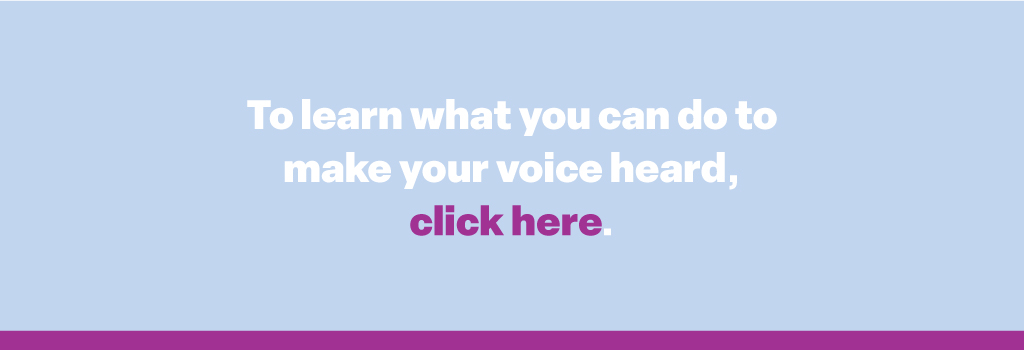Few images are more striking than the pink knitted hats swarming the country on January 21, 2017.
On that day, more than 3 million people in the U.S. and around the world marched in protest against election results that promised to erode reproductive, civil, and human rights. Unthinkable at the time, just five years later Roe v. Wade would be struck down, taking away the federal right to abortion and paving the way for states to pass laws that will ban abortion for 36 million women and other people who can become pregnant.
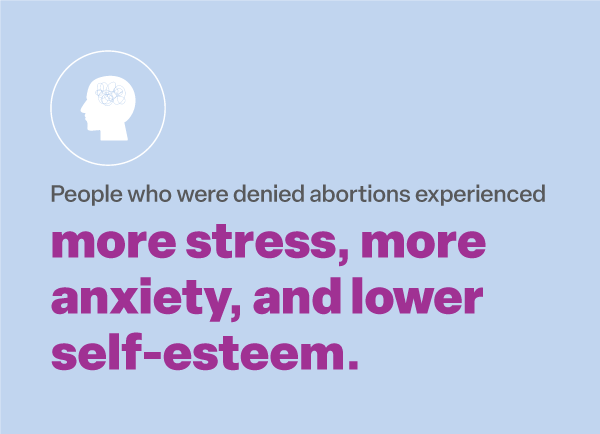
Even before the Dobbs v. Jackson Women’s Health Organization decision came down, reduced access to abortion was shown to have a negative impact on mental health. A 2018 study from Advancing New Standards in Reproductive Health found that people who were denied abortions experienced more stress, more anxiety, and lower self-esteem. This may now be the case for one in three women in states where abortion is partially or completely banned, putting both their reproductive health and their mental health at risk.
The choice to seek an abortion taps into very personal reasons. These may include health complications, financial challenges, or dealing with the aftermath of sexual assault—all conditions that can further impact mental health.
Meanwhile, there is research that now supports the causal impacts of having access to legalized abortion. A 2021 amicus brief filed by more than 150 economists and researchers in advance of the court’s decision on Dobbs cited the impact of abortion access on women’s lives. Using causal-inference methodologies, economists have isolated and measured the effects of abortion access (both in the past and present) on birth rates as well as marriage, educational attainment, occupations, earnings, and financial stability. Studies have also linked access to legal abortion to reduced numbers of unwanted children and cases of child neglect and abuse.
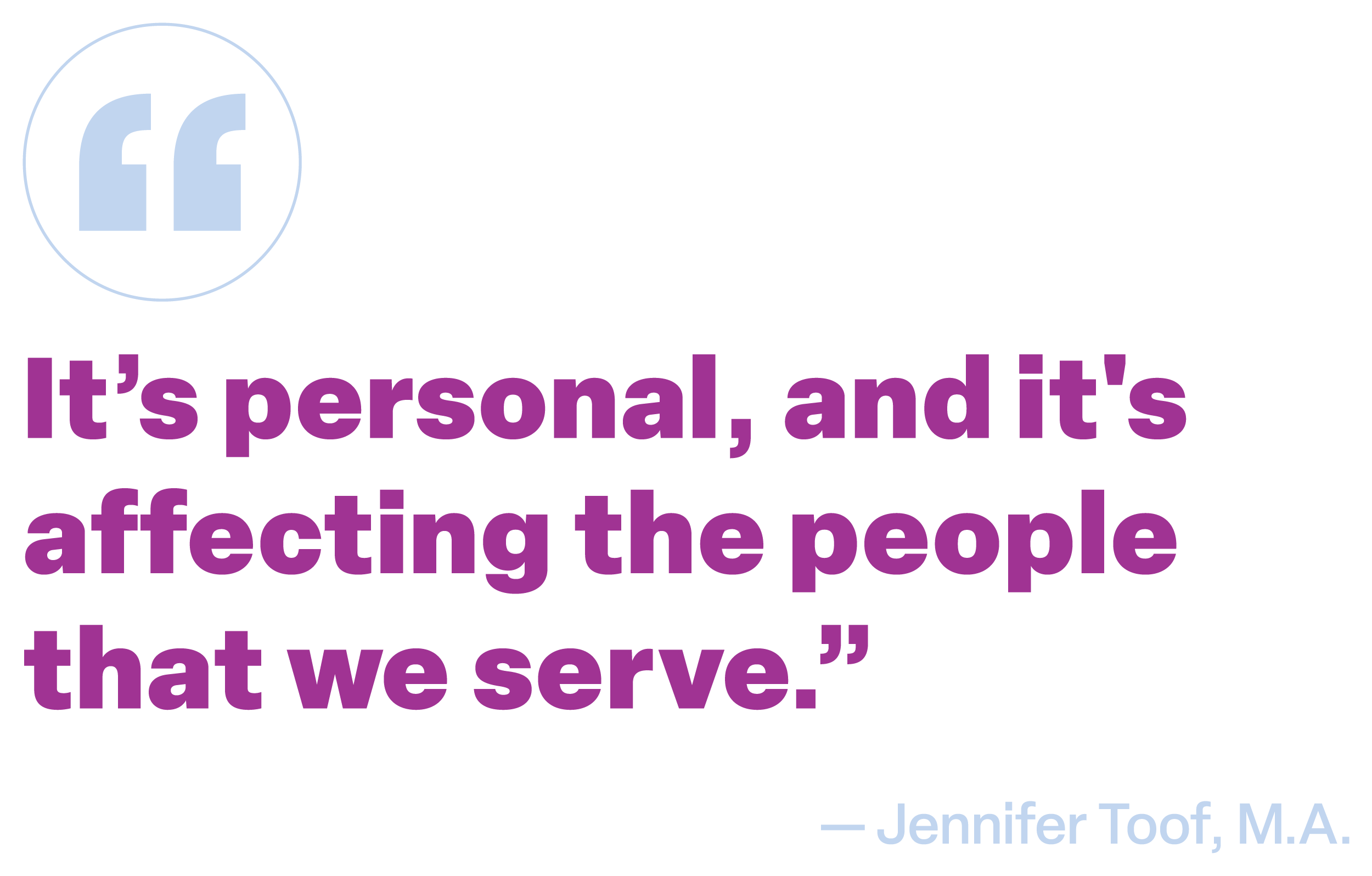
Jennifer Toof is a graduate of the M.A. in Clinical Mental Health Counseling program at The Chicago School and a Ph.D. in International Psychology student who works as a mental health and trauma therapist. She is also expecting her first child in spring 2023.
“It’s personal, and it’s affecting the people that we serve,” Toof says. “I’m having a girl, which I’m excited about, but it’s so weird thinking that I could give birth to a girl in 2023 who has fewer reproductive rights than I was born with in 1984.”
As a mental health professional, Toof understands the long-reaching effects of abortion restrictions on communities. “From the perspective of being a mental health and trauma therapist, losing access to safe, legal abortion can significantly harm mental health and well-being,” Toof says. “An unwanted pregnancy can impact someone’s ability to function in school, at work, and at home.”
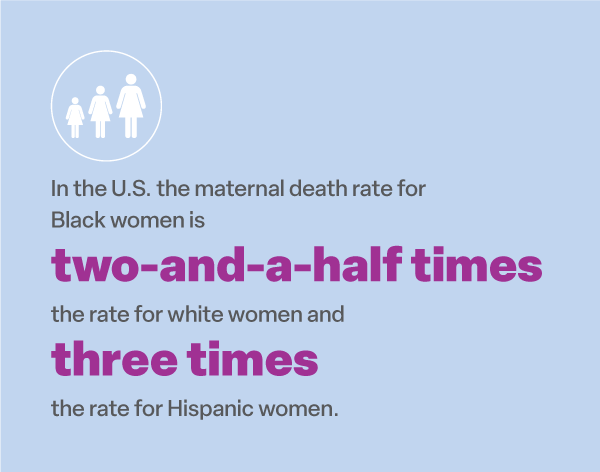
Sarah Dalton, Ph.D., a faculty member in the Counselor Education and Supervision program at The Chicago School, is wary of the court’s recent decision—both for its immediate impact and for what it means for those who already struggle to access quality, affordable health care. In the U.S.—where the maternal mortality rate far exceeds that of other industrialized nations—the maternal death rate for Black women is two-and-a-half times the rate for white women and three times the rate for Hispanic women.
“Deaths among Black women and their babies have always been the highest because Black women’s prenatal care has been terrible for so long,” Dr. Dalton says. “But now, because the Dobbs decision is impacting women who are white, we are hearing a lot more about it.
”The decision to overturn Roe v. Wade is also expected to exacerbate existing economic disparities among minorities and disproportionally affect Black women and people of color.
“Most of my students are Black women and their attitude has been very much, ‘you can’t be surprised, unequal health care is a thing that we have always known.’ And it’s just another experience of that,” Dr. Dalton says.
While the data show that most people who seek an abortion are cisgender women of color, abortion access is important for anyone who can become pregnant, regardless of gender.
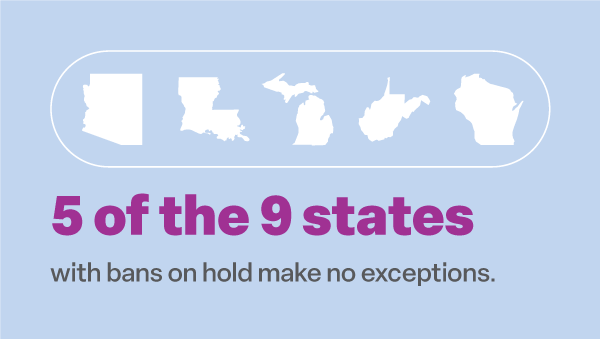
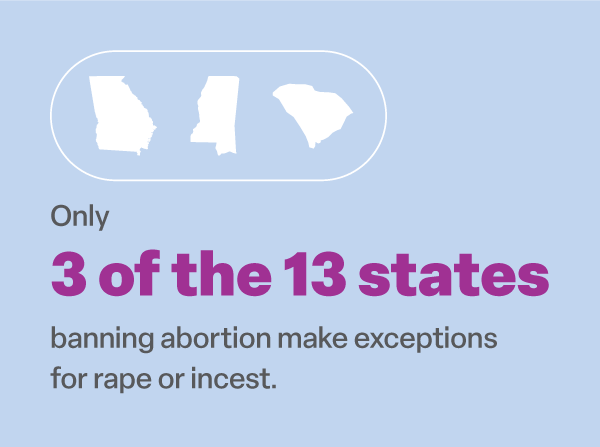
Because transgender people are four times more likely than cisgender people to experience rape or sexual assault, the risk of unwanted pregnancy can negatively impact the mental health of LGBTQIA+ people. Only three of the 13 states banning abortion make exceptions for rape or incest—and, as of July 2022, five of the nine states with bans on hold make no exceptions.
There is also growing fear that access to in vitro fertilization (IVF) will be limited by state abortion bans asserting that life begins at fertilization. If embryos and fertilized eggs are granted personhood rights, actions that disrupt transfer to the uterus could be deemed illegal. The threat of legal consequences is impacting queer families who often rely on IVF or surrogacy to have children.
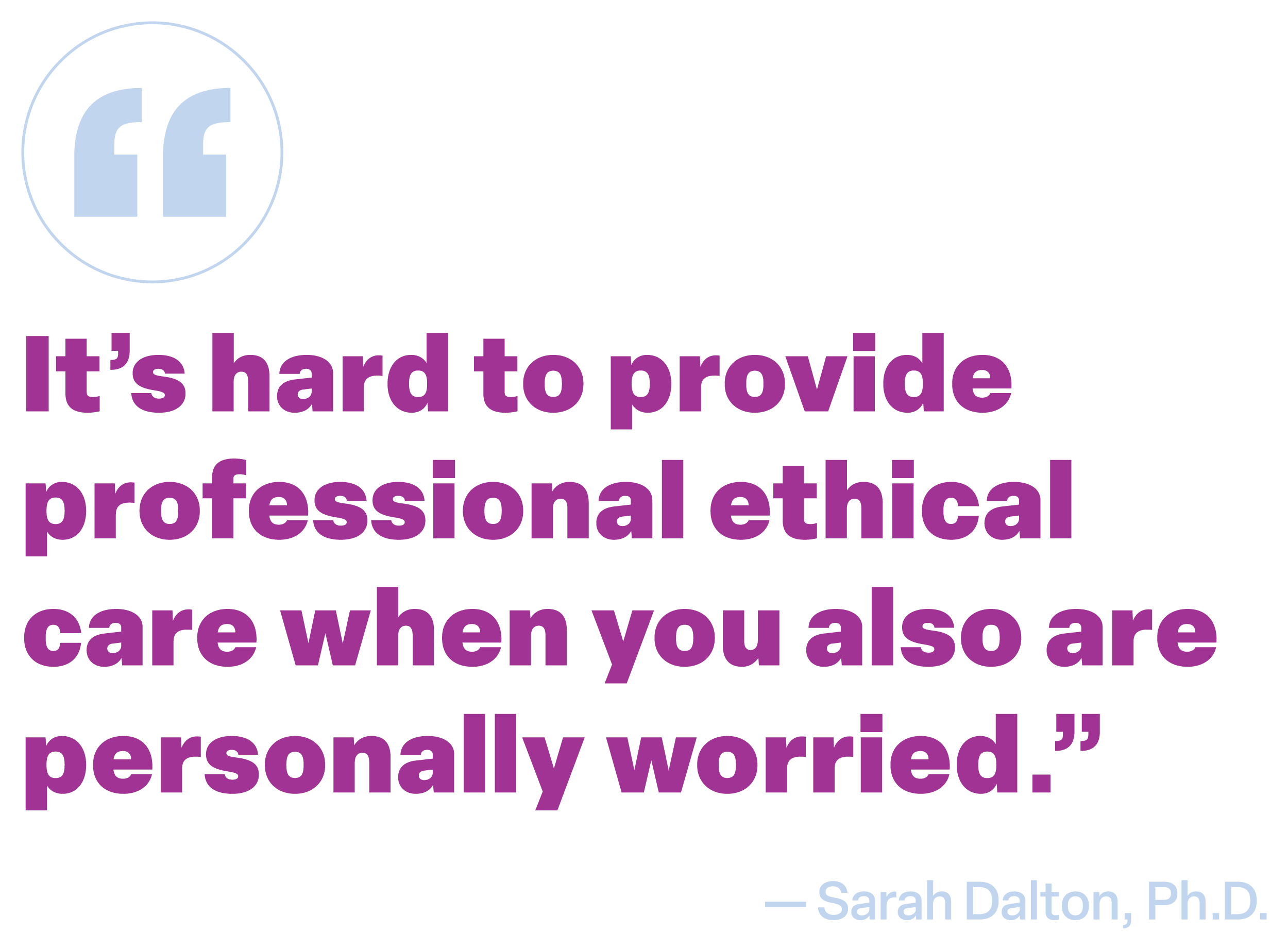
“If you feel as a queer person that you are unsafe, if you feel that your relationship is unsafe, if you feel that you can’t have the pregnancy that you want, you can’t get access to affirming medical care, how does that impact somebody’s mental health? The intersectionality of it is just extreme,” Dr. Dalton says.Dr. Dalton has also seen this firsthand. In addition to being a teacher, she is a practicing clinician and certified sex therapist. Since many of her clients seek counseling for relationships, gender identity, and sexual orientation, Dr. Dalton sees the stress induced by the Dobbs decision as well as the potential threats to same-sex intimacy and same-sex marriage. She’s also facing the issue herself as a queer person.
“When clients from rural places say they’re afraid that same-sex marriage is going to be overturned and they feel unsafe, I understand because I’m from a rural area, and I do worry about my own relationship,” Dr. Dalton says. “It’s hard to provide professional ethical care when you also are personally worried.”
To better serve the queer community, Dr. Dalton developed an online practice to reach clients in rural areas where they might not have access to trans- or queer-affirming clinicians.
As a teacher, Dr. Dalton focuses on giving her students a safe place to talk and to relate the topic to what her students will be teaching in the future and applying it to the many lenses of intersectionality. The Counselor Education and program at The Chicago School also encourages students to go to therapy, both for their own well-being and to make sure they can show up for their clients.
“Our own mental health has to be at the forefront,” Dr. Dalton says. “If clinicians or students are getting burned out, I really encourage them to take the time that they need or get the supervision that they need or go to counseling because all you’re going to do is harm your client.”
Learn more about The Chicago School
To learn more about academic programs at The Chicago School, fill out the information below to request more information. You can also apply today through our application portal here.

